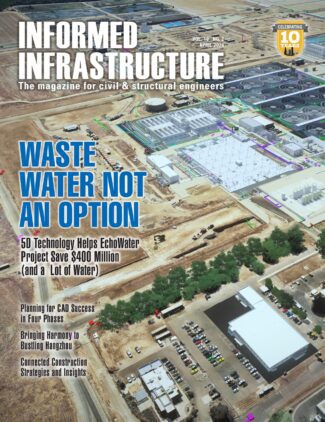Dealing a Blow to Science
What's next? That's what scientists around the globe, including many remote sensing professionals focused on Earth science, are wondering after theOct. 22, 2012, manslaughter convictions of six Italian scientists who had the unenviable job of determining whether a major earthquake was likely to occur in central Italy in the spring of 2009. Despite a lack of probabilistic evidence supporting such an event, a magnitude 3.6 quake did indeed strike the city of L'Aquila in the early hours ofApril 6, 2009, leaving 308 people dead and thousands homeless.
To be sure, the L'Aquila trial was a complex proceeding. Fanning the flames in the already heated public's eye were media reports highlighting a local lab technician who announced that a major quake was imminent based on measurements of radon gas emissions”a claim that earthquake experts worldwide have declared without merit. Geophysicist Shawn Larsen at California's Lawrence Livermore National Laboratory said it was nothing more than a lucky guess and that the ability to predict an earthquake would be tantamount to saying what the weather is going to be like in this city next November.
The defense argued there's no proven scientific methodology to predict earthquakes with any degree of certainty, a valid assertion according to earthquake experts everywhere. On the other hand, prosecutors argued the defendants were overly reassuring to the public prior to the quake”a claim that does appear to have at least some merit. Even so, does this constitute manslaughter?
Underscoring Our Need to Blame
Attribution Theory advocates that we have an urgent need to find reasons for events and to hold others responsible. Indeed, the L'Aquila trial was emotionally charged, and such emotions, according to linguist Anna Wierzbicka, allow us to associate feelings like sadness, outrage, grief and distress with blame.
Psychologist Mark Alicke suggests that perceptions of an event need not even be accurate”that we all are causal profilers in everyday life and are able to attribute an event to someone whenever a causal schema is present. Considering the trial's heavy backdrop of anguish and sorrow, perhaps the deck was stacked against the scientists from the very beginning.
Revisiting Galileo
The L'Aquila event has spectral similarities to another Italian scientist on trial nearly 400 years ago. History portrays Galileo as being indicted for his beliefs in astronomy, but as author Stuart Clark points out, Galileo actually was tried and convicted for the way he communicated those beliefs”a subtle difference. The Vatican wasn't opposed to astronomy itself, just the unauthorized communication of ideas opposed to those in the Bible.
Galileo communicated too much and lacked the scientific proof to substantiate his theories, whereas the L'Aquila scientists were charged with revealing too little. But perception is reality, and the trial's guilty verdict has created a perception that these were bad scientists practicing bad science. As a result, scientists everywhere now are reconsidering how they should”or should not”present their findings to the public. And the latter thought is what's disturbing.
David Oglesby, associate professor of Earth sciences at the University of California, Riverside, points out, I can understand the grief of people who lost loved ones and the frustration that people feel when terrible events happen, especially ones outside their control. Convicting honest scientists of manslaughter does nothing to help this situation and may well put a chill on exactly the kind of science that could save lives in the future.
And that would be tragic. As the late French author and philosopher Albert Camus said, The evil that is in the world almost always comes of ignorance, and good intentions may do as much harm as malevolence if they lack understanding.
” By Jeff Specht, publisher, Earth Imaging Journal

